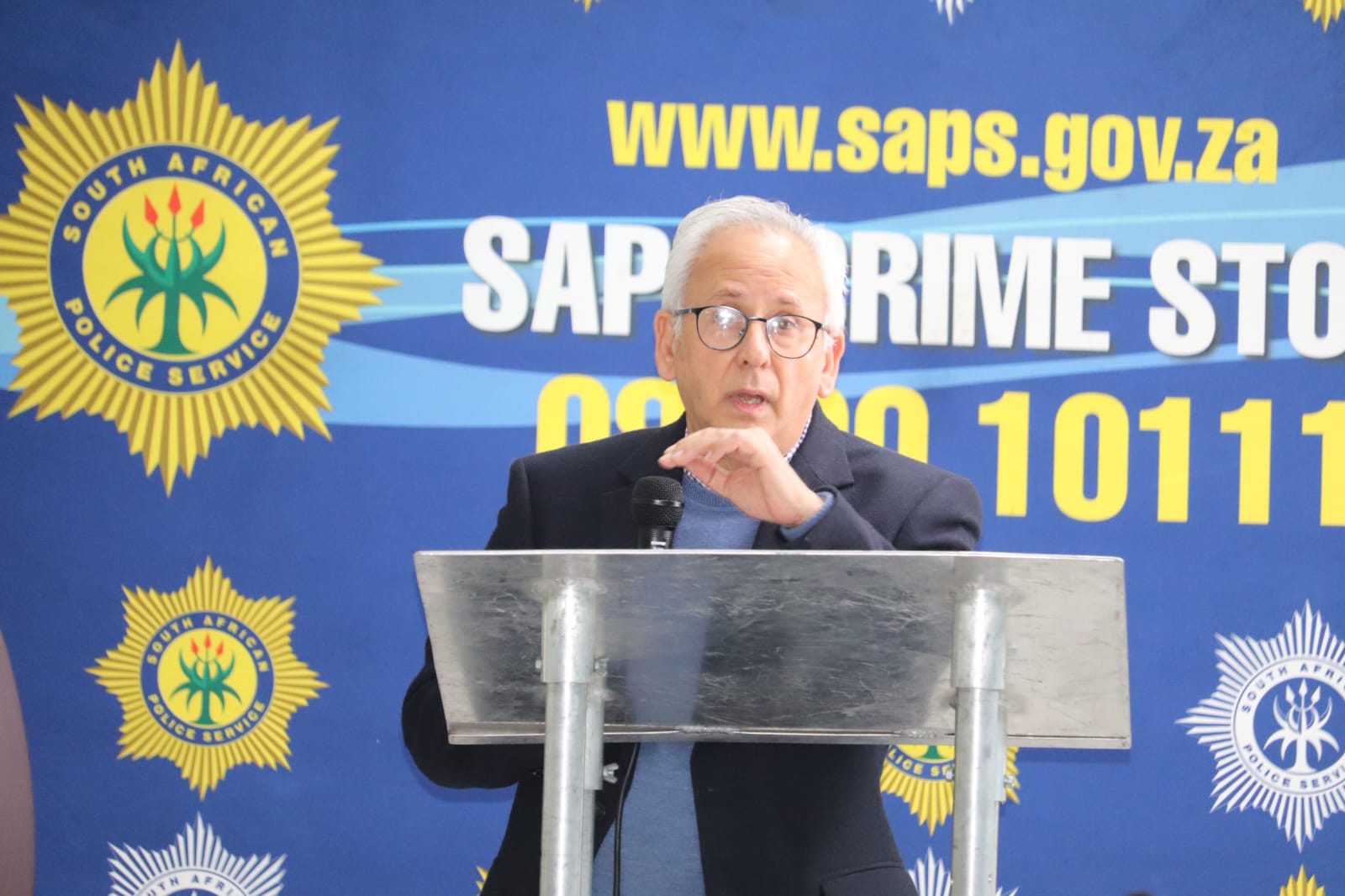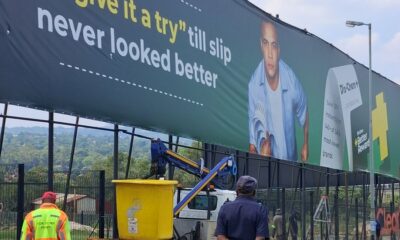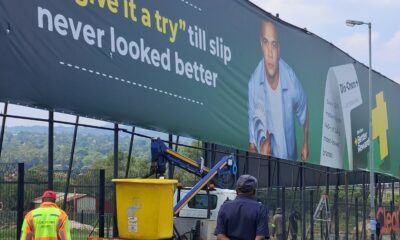News
‘They’re supposed to be in school’: Cachalia warns as 13-year-olds are lured into organised crime

South Africa’s youth pulled into organised crime as gang networks tighten their grip
When Acting Police Minister Firoz Cachalia stood before the media on Monday, his voice carried the weight of a country exhausted by violence and now, by something even more disturbing. Children as young as 13 are being recruited into organised crime syndicates, lured into gangs that promise belonging, money, or power in places where opportunity is scarce.
“They’re supposed to be in school,” Cachalia said soberly. “They should be looking forward to a bright future, not serving as runners for criminal networks.”
His comments came after a series of brutal shootings in Westbury and Reiger Park, two Johannesburg communities long scarred by gang warfare. In Westbury, two teenagers lost their lives and five others were injured in what police suspect was a gang-related attack. A week earlier, six people were killed in a drive-by in Reiger Park.
#sapsGP The Minister of Police, Mr Firoz Cachalia is leading the stakeholder engagement to address critical issues of gang violence and policing in the community of Sophiatown.
Stakeholders present include other law enforcement agencies and Department of Home Affairs, CPF, the… pic.twitter.com/hZe3OM9Rgt
SA Police Service 🇿🇦 (@SAPoliceService) November 10, 2025
Communities under siege
Cachalia met with SAPS leadership, including National Police Commissioner Fannie Masemola, Gauteng Commissioner Tommy Mthombeni, and his deputies Polly Boshielo and Cassel Mathale, to strategise on tackling Gauteng’s spiralling gang problem.
While police leadership discussed operational tactics, Joburg Mayor Dada Morero offered a more grassroots appeal. Speaking at the JMPD headquarters in Sophiatown, he urged parents and communities to reclaim their children before gangs do.
“These kids should be playing football or netball, not running drugs,” Morero said. “We need to create spaces where they belong, through sport, through mentorship, through hope.”
Morero confirmed that the City’s dormant drug action committee has been revived and will now function from his office, partnering with schools, community groups, and NGOs to address substance abuse one of the key drivers of youth crime.
A fight bigger than the police
Despite the strong rhetoric, Cachalia acknowledged a reality that frustrates many residents: people no longer trust the police. Some Westbury locals have complained that community voices were excluded from stakeholder meetings, an omission Cachalia didn’t deny.
“There’s a trust gap,” he admitted. “People are scared. They see the violence, and they don’t believe the system can protect them.”
He said the reluctance of witnesses to come forward out of fear for their lives is one of the biggest obstacles to prosecution.
And while there are growing calls to deploy the SANDF in high-risk areas, Cachalia believes the SAPS must lead the charge, but with smarter strategies.
“This is not ordinary gang violence,” he emphasised. “It’s organised crime and that requires intelligence-driven policing.”
The City of Johannesburg remains committed to building strong collaborations with the South African Police Service, the Department of Community Safety, and our communities to fight crime and protect our residents.
Under the leadership of the Acting Minister of Police, Prof. F.… pic.twitter.com/lb4WPSVXs6
Executive Mayor of the City Of Joburg (@DadaMorero) November 10, 2025
The long shadow of poverty and exclusion
For communities like Westbury, Eldorado Park, and parts of the East Rand, the story of gang violence is as old as the apartheid housing policies that fractured these neighbourhoods decades ago.
High unemployment, poor schooling, and limited access to opportunities have created fertile ground for gangs now increasingly linked to drug and gun trafficking networks that stretch beyond provincial borders.
Cachalia recognised this connection, noting that poverty and marginalisation leave young people vulnerable to recruitment.
“Many of these communities feel forgotten,” he said. “That frustration turns into something more dangerous when criminal organisations step in to fill the gap.”
Revised anti-gang strategy to focus on intelligence and prevention
Cachalia confirmed that South Africa’s anti-gang violence strategy has been revised following his recent visit to the Western Cape, historically the epicentre of gang warfare.
The updated plan includes:
-
Strengthening intelligence and detective units for targeted operations.
-
Expanding anti-gang units in Gauteng, KwaZulu-Natal, Eastern Cape, and Western Cape.
-
Increasing community engagement through partnerships with local leaders.
-
Using data-driven methods to track firearm trafficking.
“We’re not treating this as a one-off operation,” Cachalia said. “It’s a long-haul commitment that requires constant monitoring and adjustment.”
‘We all have a role to play’
Mayor Morero echoed a call for shared responsibility, saying law enforcement alone cannot defeat gang culture.
“Crime cannot be won by the police alone,” he said. “Communities must stand with them. Parents, schools, and churches, everyone has to help pull these kids back.”
Social media has mirrored this sentiment, with many South Africans expressing frustration and fear over the growing reach of organised crime into schools and playgrounds. Hashtags like #SaveOurBoys and #StopGangRecruitment have begun circulating on X (Twitter), with residents from Cape Town to Pretoria calling for after-school programs and mentorship initiatives to keep children safe.
The fight ahead
Cachalia’s warning is clear: South Africa’s gang problem is no longer confined to “bad neighbourhoods.” It’s evolving into a sophisticated criminal network that thrives on social neglect and economic despair.
“It goes back many decades,” he reflected, “but now it’s taking on a new and more dangerous form, one that involves more guns, more drugs, and younger recruits.”
The road ahead is steep. But for communities like Westbury and Reiger Park, the hope is that this renewed national focus will finally turn promises into action, before another 13-year-old trades a school uniform for a gang insignia.
{Source: The Citizen}
Follow Joburg ETC on Facebook, Twitter , TikTok and Instagram
For more News in Johannesburg, visit joburgetc.com



























